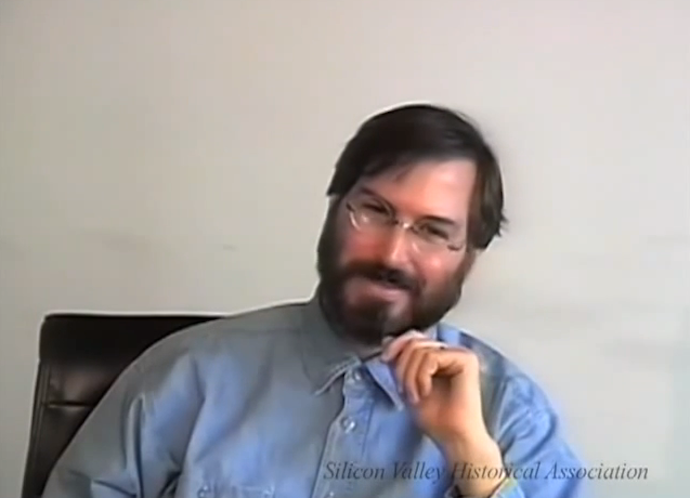Rare 1994 Steve Jobs Interview Shows A Man Who Understood The Fast Paced Technology World’s Impact On His Legacy


A wise man once said: “Some are bound to die young; by dying young a person stays young in people’s memory. If he burns brightly before he dies, his brightness shines for all time.” Such was the life of Apple co-founder Steve Jobs. During his 56 years on Earth, Jobs envisioned products—such as the Macintosh computer, the iPhone and the iPad—that shaped our very world. And upon his premature death—from cancer in 2011—Jobs became a legend. Memories of him have been invoked through essays, books, blogs and even a couple of movies. Anytime Apple makes an announcement or its stock fluctuates, fans around the world wonder aloud, “What would Steve do?” But for all his vision and wisdom, Jobs didn’t foresee his life as particularly memorable, as demonstrated in a rediscovered 1994 interview.
“All the work that I have done in my life will be obsolete by the time I’ve 50,” Jobs, 39 at the time, said in a video recently posted to YouTube. “The Apple 2 is obsolete now, Apple 1’s were obsolete many years ago, the Macintosh is on the verge of becoming obsolete in the next few years.”
EverySteveJobsVideo released the clip—from a 1994 interview conducted by the Silicon Valley Historical Association—on its YouTube channel June 18. The Historical Association recently turned its 20-minute interview into an hour-long documentary entitled “Steve Jobs: Visionary Entrepreneur.”
Although some of his greatest innovations were yet to come, Jobs was surprisingly modest when describing his contributions to technology. At the time, the company he founded after being ousted from Apple in 1987, NeXT Computer, had just turned its first profit, and the iPhone was nothing more than a glint in his eye.
“It’s sort of like sediment of rocks. You’re building up a mountain and you get to contribute your little layer of sedimentary rock to make the mountain that much higher,” Jobs says in the video. “But no one on the surface, unless they have X-ray vision, will see your sediment. They’ll stand on it. It’ll be appreciated by that rare geologist.”
Of course we now know that Jobs was much more than a sedimentary layer within a mountain. His was a story found in great literature. He founded a company that changes the world, then is thrown out of his own creation. Undeterred, Jobs founded a new company, and while it was less successful, Apple invited him back to the helm. Through his leadership, the company blossomed further than anyone in 1994 could ever have imagined. Alas, the life of the intense, ruthless and brilliant mind was cut short by cancer, and the world may never realize the inventions that had yet to rise from his genius. If Mount Rushmore were to be carved today, it’s very likely Jobs’ face would be selected to grace the mountain.
If Jobs ever becomes a forgotten piece of history, it will be in future too distant for us to see.









































